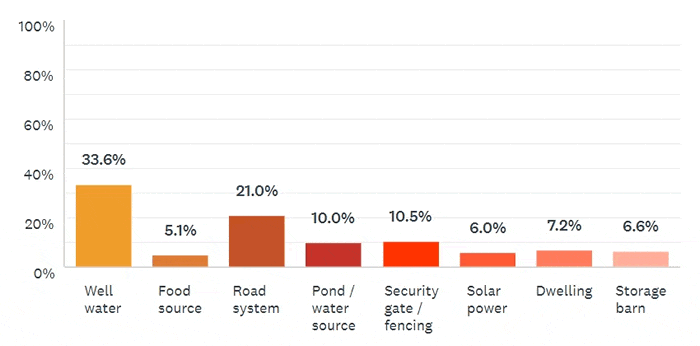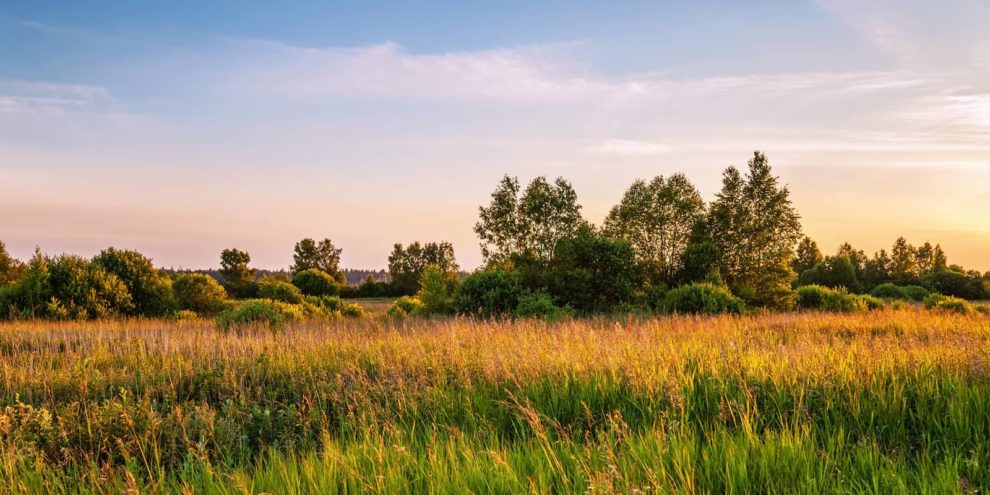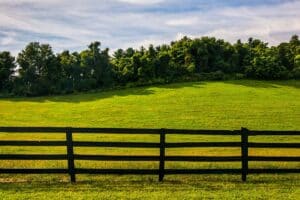According to the May LANDTHINK Pulse results, 33.6% of respondents indicated that if they were to purchase undeveloped rural land for sale, a Water Well is the first improvement that they would invest in. The land you purchase will likely be one of your most valuable assets, especially if you plan on owning it for a long time. Taking the initiative to make valuable improvements on the property may be one of the smartest things a landowner can do aside from the initial investment.
Last month, the May Pulse asked: If you were to purchase undeveloped rural land, what’s the first improvement you would invest in?
May Pulse Sponsored by
In general, there are two types of buyers for undeveloped rural land; investors, whose primary goal is to create wealth and maximize financial gain, and buyers who purchase with personal enjoyment as a primary goal. It is the latter that commonly add material improvements to the property they have purchased, such as deep wells, ponds, road systems, or dwellings. For a budget-minded buyer, purchasing unimproved property gives them the ability to customize the land and turn it into the dream property they’ve always envisioned owning. Because improved property sells at a higher price, for most buyers, this financial incentive is enough to make them want to buy undeveloped land. Obviously, everyone has different priorities, but the beauty of buying land that needs work is having free rein to choose certain elements you want in your dream property- everything from hunting enhancements and improved vegetation to the construction of a cabin.
Each piece of land is unique, and there are almost as many ways to improve land as there are parcels of land and willing land owners. Based on the results of last month’s survey question, buyers understand that living in an area that is remote can present problems with public water systems, and drilling a well can offer them some great benefits.
Owning a private well offers several advantages, among them being uninterrupted access to clean water. Landowners can relish in the fact that they do not have to contend with water bills. While the cost to drill a well is sometimes daunting, the cost savings over the long term will offset that cost. There are several reasons for investing in water well drilling for your property:
1. Health Benefits. To make public water clean enough for drinking, it is treated with chlorine, fluoride, and other harsh and dangerous chemicals. It must be treated with low dose chemicals, and it must be heavily filtered. Water from a well travels straight up from the ground, and is free from chemicals and bacteria, making it much healthier and safer to drink.
2. Water Wells Are Private. Investing in a water well on your property makes you far less dependent on the principality that provides water for your rural area. Having a well means that you never have to worry if there’s an emergency and water supply is cut off.
3. Access in Remote Areas. In some very remote areas, people have to rely on private well water as their primary source of drinking water. In this situation, the investment of putting in a well will almost always be worthwhile. Water is the most basic resource but also the most essential. If your land is a long way from a municipal water supply, then drilling a well is definitely an option you’ll want to consider.
4. Save on Watering Your Landscaping & Other Uses. By digging a well you can tap into an aquifer and raise that ground water up, supplying it to your sprinklers and irrigation system. The money saved on the water bills can even cover the cost of drilling in just a few years. Some areas may even give you a tax credit for drilling a well. Other water uses to consider include farming activities, swimming pool, and fire protection, among others.
If you are looking to construct a well on undeveloped land, you will need to consider several factors to ensure proper location and efficient drilling of your new well and to ensure a safe source of drinking water. Find a reputable provider of surveying and planning services to assess your land before setting up a well water distribution system. The water needs to be clean enough for drinking purposes, industrial purposes, and agricultural purposes.

Coming in second (21.0%), land buyers said they would invest in improving the Road System on the land they purchased. If you own a large rural property or a ranch and do not have any internal driveway or road system, your value will be pulled down.
Internal road systems on rural land vary greatly, from dirt trails to shaped asphalt roads with drainage ditches, but most land buyers just want some way to access their entire property. A good road system is especially important if you bought hunting land. Reaching some hunting spots can be a real pain. According to Mossy Oak Properties, a good road system is the one improvement that typically contributes greatly to a property’s value:
The more roads a property has, the easier it is for landowners and prospective buyers to move around. Roads can also double as fire breaks, reducing risk and liability during controlled burns or in the event of a wildfire. In addition, cars, trucks, ATVs and farming equipment won’t break down as much because they will be driving on quality roads rather than on rough trails.
Buyers should enlist the help of an experienced land agent, who can offer advice and contacts to help buyers understand what they are getting into when they decide to buy land that needs improvements, in order to ensure they are making the best decisions.
Last month’s survey results were all over the board, but the majority of respondents (33.6%) indicated their desire to drill a Water Well on their land soon after making the purchase. Coming in a very close second, 21.0% said improving the Road System would be top on their list. This was followed by 10.5%, who indicated that they would invest in a Security Gate/Fencing shortly after buying land. Adding a Pond/Water Source (10.0%), building a Dwelling (7.2%), building a Storage Barn (6.6%), adding Solar Power (6.0%) and planting a Food Source/Crop (5.1%) were of least priority to buyers.
LANDTHINK would like to thank Farm Credit Associations of Georgia for sponsoring the May Pulse and for choosing a very interesting question to pose to our audience. When it comes to financing land, farms or homes, buyers have several options. Farm Credit Associations of Georgia offer advantages that aren’t available to buyers with other lenders. Their commitment and experience lending to agriculture and rural Georgia make the difference.
Become a Pulse sponsor! It’s a great way to ensure your brokerage is the first one buyers and sellers call when they have a need to buy or sell property. You’ll get insane exposure on Social + Email + Web. That’s 500,000+ monthly eyes on you! Once you have it, you won’t want to give it up! Pulse sponsorships are offered on a first come first serve basis and are subject to certain limitations. If your business would be interested in sponsoring a Pulse question, please contact us soon.
Do you have a suggestion for next month’s Pulse question? Submit your question and we might choose yours!
We want to know what you think about our June Pulse question, chosen and sponsored by American Forest Management: Which would be your first source when seeking the estimated value of land you own or want to purchase? Answer now.
This content may not be used or reproduced in any manner whatsoever, in part or in whole, without written permission of LANDTHINK. Use of this content without permission is a violation of federal copyright law. The articles, posts, comments, opinions and information provided by LANDTHINK are for informational and research purposes only and DOES NOT substitute or coincide with the advice of an attorney, accountant, real estate broker or any other licensed real estate professional. LANDTHINK strongly advises visitors and readers to seek their own professional guidance and advice related to buying, investing in or selling real estate.











Thanks for the info to help people make better educated decisions when buying rural land.